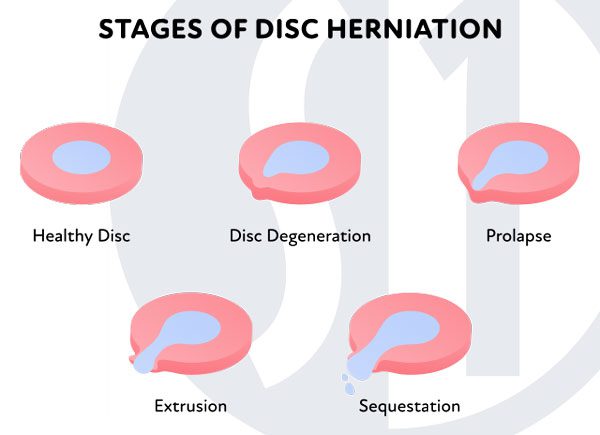Ruptured Disc
An Advanced Form of Disc Deterioration
A ruptured disc is often called a disc protrusion, disc extrusion, annular tear, and herniated disc. These terms describe a state when a tear forms in the outer portion of the disc, allowing the softer disc center to move outward. This can occur anywhere in the spine and is the most common cause of low back pain/sciatic pain. This condition may result from aging or wear and tear, and is also called degenerative disc disease. Sudden forces applied to the spine in a motor vehicle accident can be great enough to start the process of rupture with a tear to annular fibers. Poor lifting techniques, prolonged sitting, being overweight, smoking and sedentary lifestyle may contribute to their development.
Disc degeneration often occurs in several stages, and disc rupture is an advanced stage. When a disc becomes thinner, drier or weaker due to age or injury, it can begin to protrude beyond its normal position between the vertebrae. This condition can eventually lead to a full herniation, or tearing, of the disc’s outer wall and the subsequent extrusion of nuclear material.
SpineOne treats disc rupture with a combination of rest, anti-inflammatory medication, physical therapy, and minimally-invasive therapies. These treatments offer effective and lasting relief from disc degeneration and also provide an alternative to open back surgery. Your doctor will likely order advanced diagnostic imaging to confirm the rupture. Patients who follow this treatment plan report significant reduction of their pain and improvement of their range of motion and quality of life.
Ruptured Disc Symptoms
Symptoms of a rupture are usually related to compression of the spinal cord or a nerve root by displaced disc material. These symptoms can include:
- Local aching and pain
- Shooting pain into the upper or lower extremities
- Radiating symptoms like tingling, numbness and muscle weakness
